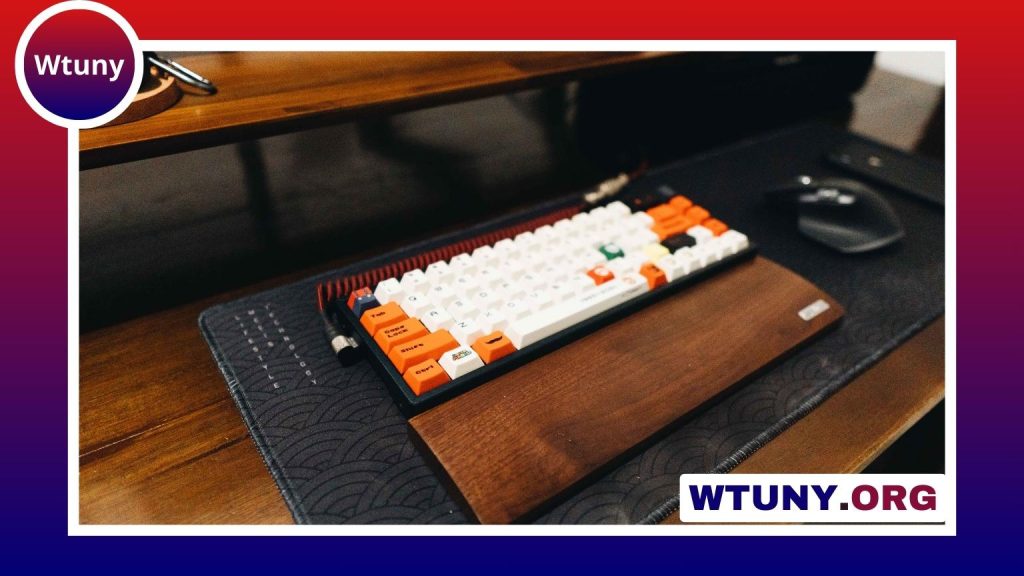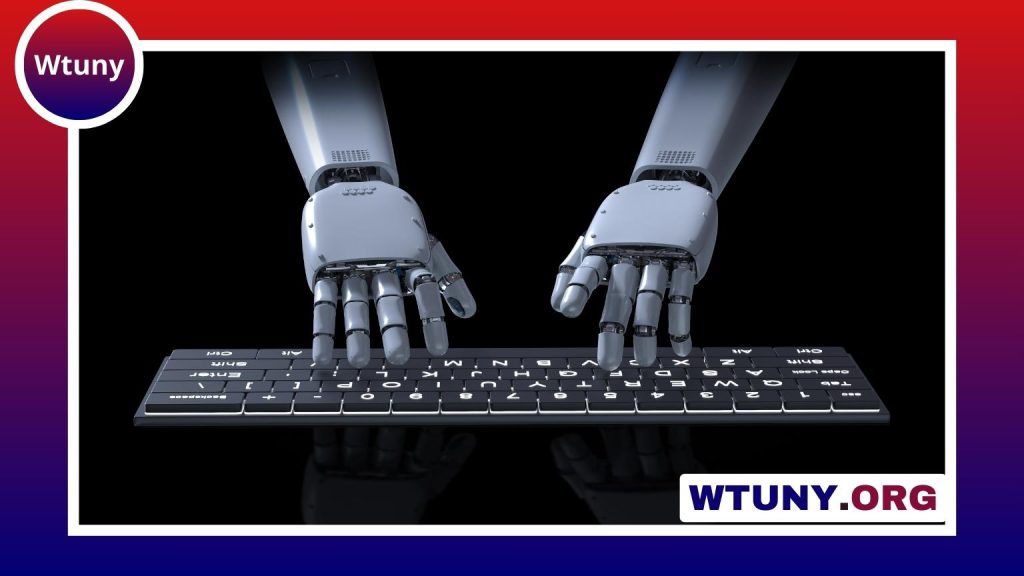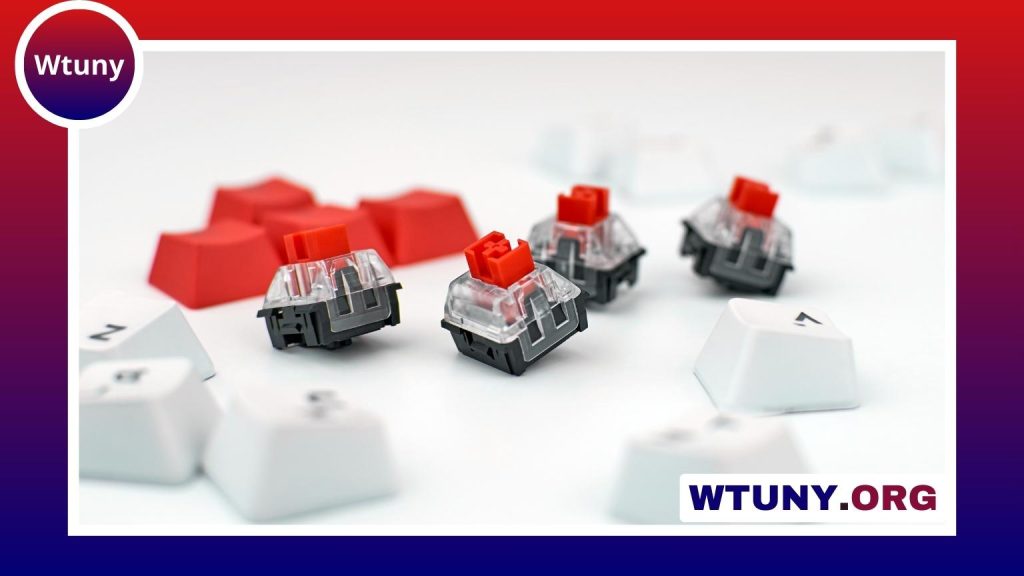In the realm of computing, the choice of peripherals can significantly impact user experience and productivity. Among these peripherals, the mechanical keyboard stands out as a tool that transcends mere utility, offering a blend of tactile satisfaction, durability, and performance that can profoundly influence the way we interact with our digital devices. Delving into its importance unveils a world where precision meets comfort, where typing becomes an art form, and where the tactile feedback of each keystroke sparks a symphony of productivity. So, just how important is a mechanical keyboard?
What is a mechanical keyboard and how does it function?
A mechanical keyboard operates by employing distinct mechanical switches for each key. These switches activate upon keystroke, providing tactile feedback to indicate successful input registration. This tactile response aids in enhancing typing speed and accuracy.
What advantages does a mechanical keyboard offer?
Compared to conventional keyboards, mechanical keyboards boast superior durability, an extended lifespan, and enhanced tactile feedback. This tactile response not only enhances typing efficiency but also contributes to greater precision.
Enhanced Tactile Feedback

For avid typists, the resounding endorsement often points towards the superiority of mechanical keyboards. Their appeal lies in the enhanced tactile feedback they provide, setting them apart from their counterparts and fostering a typing experience that is both gratifying and comfortable.
With each keystroke on a mechanical keyboard, there’s a discernible sensation—a tactile bump or audible click—as the key actuates the switch. This immediate feedback not only confirms successful input but also facilitates rapid and precise typing. Conversely, keyboards utilizing silicone membranes offer minimal tactile response, leaving users unsure of key activation and prone to errors.
Moreover, mechanical keyboards boast unmatched durability compared to their counterparts. Their keys, comprised of sturdy mechanical switches, endure extended use with resilience. As a result, those seeking a long-term keyboard solution find mechanical keyboards an enticing option.
The surging popularity of mechanical keyboards underscores their compelling advantages. From heightened typing comfort to longevity, they offer a compelling choice for users seeking an optimal typing experience.
Reduced Typing Fatigue

Mechanical keyboards are frequently praised for their ergonomic construction, tactile responsiveness, and capacity to alleviate typing fatigue over long periods. This advantage is partially attributed to the distinctive key switches employed in mechanical keyboards. These switches consist of a small metal spring and a plunger that activates upon key depression. Such a design enables a notably shorter travel distance for the keys, thereby reducing the duration your fingers remain pressed down. The outcome is diminished fatigue and discomfort during prolonged typing sessions.
Moreover, mechanical keyboards commonly offer a more pronounced tactile sensation compared to conventional keyboards. This tactile feedback stems from the utilization of individual key switches, complemented by a metal plate atop the keyboard, enhancing its solidity. This tactile feedback aids in maintaining finger placement accuracy and imparts a reassuring sense of a successfully pressed key.
Built to Last
When you depress a key on a keyboard, you’re essentially pushing a small plunger into a switch. This switch comprises two metal contacts that come together when the plunger is pressed down, permitting an electric current to pass through. The prevalent type of switch utilized in most keyboards is known as a “membrane switch.” These switches consist of a thin plastic sheet punctured with small apertures. Upon key press, the plunger exerts pressure on the sheet, closing the contacts and enabling current flow.
While membrane switches are cost-effective and simple to produce, they come with several drawbacks. Firstly, their reliability is limited – the contacts are prone to gathering dirt or corrosion, leading to potential switch failures. Secondly, they have a shorter lifespan compared to mechanical switches. Thirdly, they lack tactile feedback – they don’t provide a satisfying sensation when pressed.
In contrast, mechanical switches represent a newer switch type gaining popularity in keyboards. They offer several advantages over membrane switches: Firstly, they boast enhanced reliability – the contacts are less susceptible to dirt or corrosion. Secondly, they enjoy a longer lifespan than membrane switches. Thirdly, they provide superior tactile feedback – they offer a more satisfying feel upon pressing.
Tailoring the Typing Experience

One of the standout features of mechanical keyboards is their adaptability to align with your unique preferences. This versatility extends to various aspects, including switch types, keycap designs, and backlight colors.
Switches serve as the mechanism responsible for registering a keypress and are available in a diverse array of types. Among the most popular are Cherry MX switches, offered in a spectrum of colors like black, red, brown, and blue. Additionally, alternative switch types such as Kailh, Gateron, and Razer switches provide further options for customization.
Keycap designs offer another avenue for personalization. With a plethora of options available, ranging from standard to sculpted and even blank keycaps, you can tailor your keyboard’s appearance to match your preferences. Furthermore, the choice of materials, whether plastic or aluminum, adds an additional layer of customization.
The customization options extend to backlighting as well. You can select from a variety of colors to suit your aesthetic preferences, and some keyboards even offer the ability to create your own custom color palette, ensuring your keyboard reflects your unique style.
Expressing Personal Style
Mechanical keyboards stand out in the realm of computing by offering unparalleled levels of customization and personalization. Users have the freedom to select from a plethora of switches, keycaps, and backlighting options, crafting a keyboard that truly reflects their individuality. Among these customization options, switches play a pivotal role in defining the typing experience.
Switches, categorized by their activation mechanism, come in various types, each imparting its distinct sound and tactile feedback. Four primary types of switches include Tactile, Clicky, Linear, and Silent. Tactile switches feature a noticeable bump or click upon actuation, providing tactile feedback to the user. Clicky switches, on the other hand, produce an audible click alongside tactile feedback. Linear switches offer a smooth keystroke without any tactile bump or audible click. Lastly, Silent switches, as the name implies, deliver a quiet typing experience with a smooth linear motion.
Tactile switches offer feedback through a bump, click, or smooth linear motion upon actuation, ensuring the user knows when the key has been pressed. Clicky switches provide an audible click, aiding in typing accuracy by confirming key actuation audibly. Silent switches, with their quiet operation, offer tactile feedback without the accompanying noise, making them ideal for environments where noise is a concern.
Professional Applications

There are numerous compelling reasons for professionals to opt for a mechanical keyboard:
- Enhanced Accuracy: Mechanical keyboards boast greater precision, resulting in fewer typing errors.
- Increased Durability: These keyboards are built to last, minimizing the risk of damage and ensuring prolonged use.
- Enhanced Comfort: With slightly larger keys and increased key travel, mechanical keyboards offer a more comfortable typing experience.
- Improved Responsiveness: The keys on mechanical keyboards activate more swiftly, facilitating faster typing speeds.
- Greater Reliability: Mechanical keyboards are less prone to keys getting stuck, ensuring uninterrupted typing sessions.
Does a mechanical keyboard make a difference?

Mechanical keyboards, tracing their roots back to the early days of computing, have recently experienced a resurgence in popularity. But what’s driving this trend? Why are people favoring mechanical keyboards over traditional membrane keyboards?
One of the key advantages of mechanical keyboards lies in their durability. Unlike traditional membrane keyboards, which rely on a single rubber dome beneath each key, mechanical keyboards employ individual switches for every key. This design ensures longevity, with each switch capable of enduring up to 50 million keystrokes. In contrast, membrane keyboards typically wear out after just 5 million keystrokes.
Moreover, mechanical keyboards offer a more tactile response, allowing users to distinctly feel when a key is pressed and released. This heightened tactile feedback is particularly advantageous for gamers, enabling swift and precise execution of keystrokes.
Finaly, mechanical keyboards often boast customization options, enabling users to tailor their typing experience. From swapping out key switches and keycaps to adjusting backlight colors, these customization features empower users to personalize their keyboards for enhanced comfort and efficiency.
Why should I buy a mechanical keyboard for my laptop?
Investing in a mechanical keyboard for your laptop can revolutionize your typing experience, offering both comfort and efficiency. The keys on a mechanical keyboard deliver superior tactile feedback and responsiveness compared to standard laptop keyboards, resulting in a more natural typing sensation. Furthermore, the customizable nature of mechanical keyboards allows you to tailor various features to your preferences, such as key switches and backlighting.
Another compelling reason to opt for a mechanical keyboard for your laptop is the marked improvement in typing experience over traditional laptop keyboards. Mechanical keyboards utilize individual switches beneath each key, enhancing responsiveness and tactile feedback. This heightened tactile experience not only makes typing more enjoyable but also contributes to improved accuracy and efficiency.
CONCLUSION
The appeal of mechanical keyboards is undeniable. The sensation of pressing down the keys, the distinct sound they produce, and the tactile feedback they offer combine to deliver an unmatched typing experience. It’s no wonder why mechanical keyboards have surged in popularity in recent years, with many enthusiasts swearing by their superiority.
However, mechanical keyboards may not be the right fit for everyone. They typically come with a higher price tag than traditional keyboards and require a bit more upkeep. Therefore, it’s essential to carefully consider whether a mechanical keyboard aligns with your needs before making a purchase.
The primary allure of mechanical keyboards lies in their tactile feel. The keys are noticeably weightier and provide more resistance compared to those on traditional keyboards, resulting in a heightened tactile and responsive typing experience. This feature is particularly beneficial for individuals who engage in extensive typing tasks, as it can help minimize errors and enhance typing accuracy.
Clare Hobson is a university-trained tech game developer with a passion for creating immersive gaming experiences that blend cutting-edge technology with compelling storytelling.







